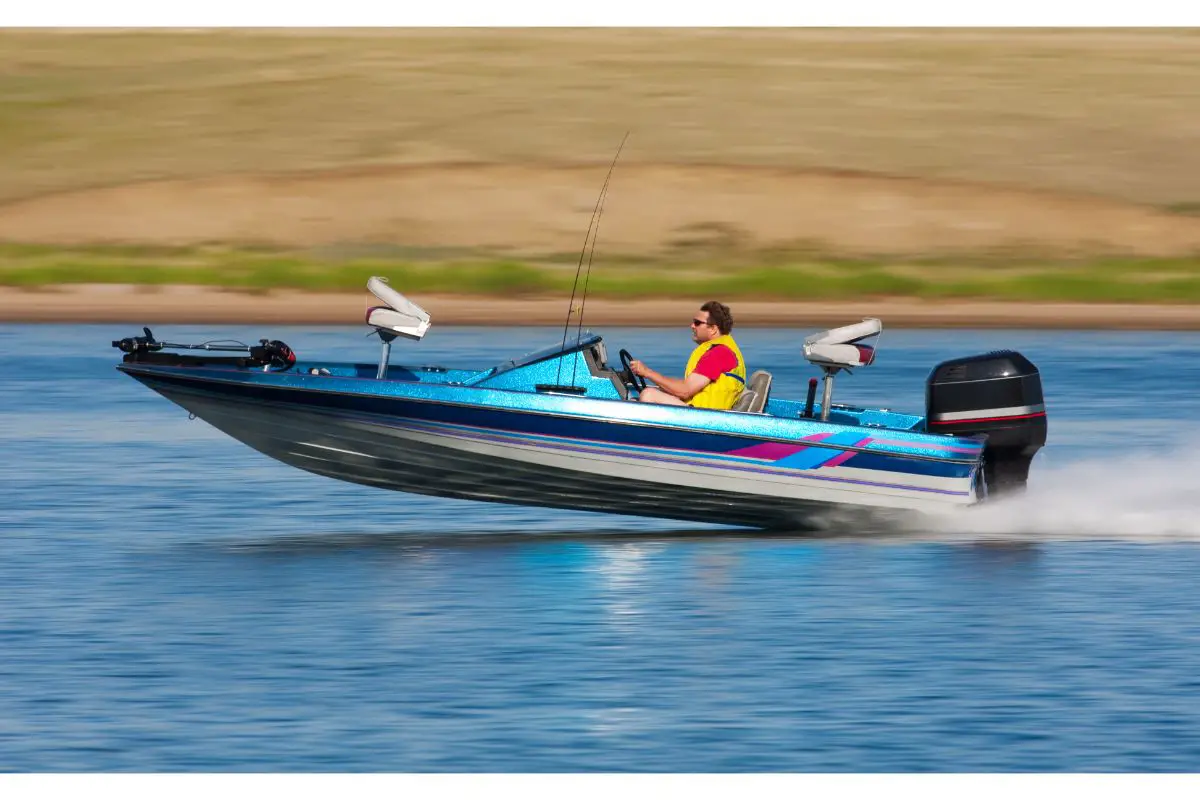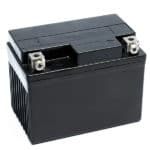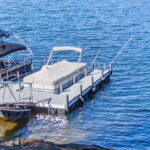Many boat owners will avoid taking their bass boats out in saltwater. And with good reason, too. Unlike freshwater, saltwater contains a large amount of salt, which speeds up the corrosion of some parts of the boat.
It’s also more likely for something to break or malfunction if you take your bass boat in saltwater. Saltwater has varying adverse effects on different parts of a bass boat, and we’ll briefly discuss these effects below.
Note: most links in this article are Amazon.com Affiliate links, see Affiliate Disclosure, thank you.
Effects of Using a Bass Boat in Saltwater
Taking a bass boat into the ocean can damage several parts of the boat. The saltwater has adverse effects on the engine, carpet flooring, trolling motor, and some other parts.
The Engine
The engines of most bass boats are designed for use in freshwater, though some do have engines designed to perform in saltwater. However, these engines are more expensive because they are built with anti-corrosive components. Consequently, most bass boat companies do not install these engines in their boats.
Engines designed only for freshwater are not made with non-corrosive components. The salt in the ocean can result in certain parts of the engine rusting, such as the motor mount, propeller, and skeg, reducing the engine’s efficiency.
If you choose to use your freshwater bass boat in saltwater, immediately flushing the engine with fresh water will help prevent corrosion.
The Flooring
Most bass boats have carpet flooring. As you rush through the waves, there’s no avoiding saltwater spilling onto the boat, which, unlike freshwater, poses a problem to freshwater bass boats. As the carpet takes in the salt water, the high salt content causes the wood subflooring to rot quickly and become damaged.
The Trolling Motor
During harsh conditions such as strong winds, the trolling motor keeps the boat in one spot. As with bass boat engines, there are trolling motors designed for freshwater use and others designed for fresh and saltwater use. Trolling motors suitable for saltwater are expensive and, as such, are not usually used in bass boats.
A trolling motor designed for freshwater will quickly rust when exposed to saltwater, thus shortening its lifespan. Trolling motors are quite expensive, so it would be best to keep yours out of saltwater unless it was specifically designed for saltwater.
The Electrical Systems
There are various electrical systems on bass boats; like all electronics, they do not react well to water. The electrical system of bass boats includes cables, headlights, and batteries which will rust and stop functioning if exposed to saltwater.
Saltwater bass boats don’t usually have this problem, as their electrical systems are made of saltwater-resistant components. Since freshwater bass boats are designed to be used in freshwater, the electrical systems installed are not made of the same expensive corrosion-resistant components. Exposing them to saltwater will cause them to fail much faster.
The Steering Systems
Steering systems that are designed for freshwater use get damaged when used in saltwater. Components such as adjustment knobs, cables, hydraulic lifts, and cylinders are also damaged when exposed to harsh saltwater conditions. Although you can change your steering cable and hydraulic fittings if you wish to, the cost of doing so may make you rethink taking your freshwater bass boat out into the ocean.
Metal Hardware
Freshwater bass boats usually use chrome-plated hardware, such as door hinges and anchor cleats. Conversely, bass boats used in saltwater use stainless hardware that will not rust when exposed to saltwater conditions.

How to Protect Your Bass Boat from the Effects of Saltwater
Using your bass boat in saltwater will damage certain parts of the boat if the boat is not designed for use in saltwater. Over time, exposure to saltwater and salt spray will corrode parts of the boat. Here are a few tips to protect a bass boat from the adverse effects of saltwater.
Wash the Bass Boat with Fresh Water. You should wash the boat with fresh water every time you use it in saltwater. Flush the engine and other necessary parts with fresh water, such as the trolling motor, deck, and flooring. For deep cleaning, you may use soap or water and scrub. Cleaning with fresh water will wash away the salt and prevent parts of your boat from rusting.
Use Marine Wax. This is used as a preventive measure. Applying marine wax all over the different parts will prevent the salt crystals in saltwater from sticking to those parts. Using marine wax before and after every prime season can make all the difference.
Invest in Good Cleaning Equipment. You need certain cleaning equipment to remove all traces of salt from your bass boat successfully. A long-handled brush will work well. You can also use a microfiber cloth for deep, non-abrasive cleaning. Get a stain remover to remove surface dirt and salt crystals that are stuck. For sidewall cleaning, you may use a tough-handled scrub pass kit.
Fix Paint Chips and Scratches. Repair all dings and scratches as soon as you can. The underlying metal surface is exposed when the paint is scratched or has a dent, which may lead to saltwater exposure and rust if not fixed immediately. When painting over metal surfaces, use coatings and primers designed for aluminum surfaces to ensure you don’t end up damaging the same surfaces you want to protect.
Can You Find Bass Boats Designed for Saltwater?
There are bass boats specifically designed for use both in fresh and saltwater. Many popular boat companies offer bass boats that can perform well in both bodies of water.
However, these boats don’t come cheap. They are made of components built to withstand the conditions of the saltwater environment. You can get the best of freshwater and saltwater fishing with such boats.
Conclusion
Although a bass boat can go in saltwater, it’s advisable to keep it out of saltwater if it wasn’t designed to do so. Taking your freshwater bass boat out in saltwater will result in the corrosion of different parts of your boat and ultimately cause the catastrophic failure of components.




[…] spot lock (or anchor) feature of an electric saltwater trolling motor also allows you to lock your boat at a specific spot in just a few […]